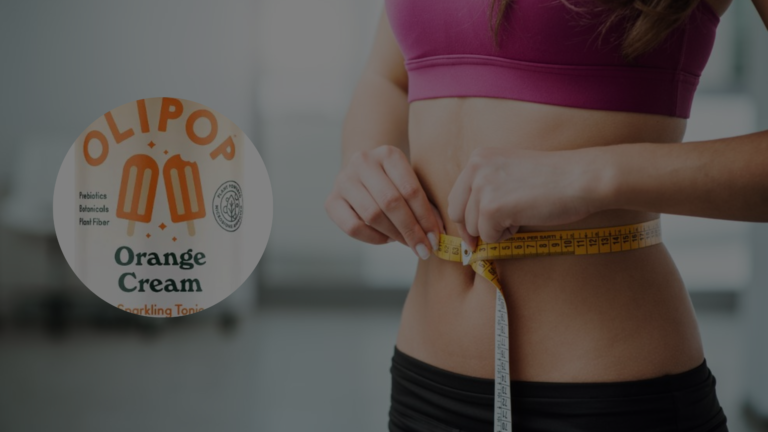Is Butter Good for Weight Loss?
Butter is often at the center of the debate in dietary choices for weight loss. But, Is butter good for weight loss journey? This comprehensive guide will explore the relationship between butter and weight loss. We will examine its nutritional profile, potential benefits, and important considerations you must consider.
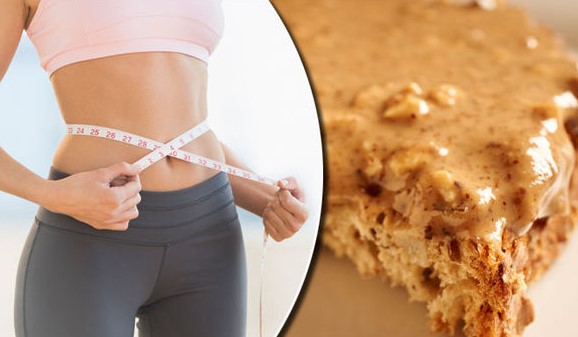
The Nutritional Profile of Butter
What’s in Butter?
Butter is a dairy product known for its creamy texture and rich flavor. It’s primarily composed of fat and is a good source of certain essential nutrients. In a typical serving of butter (one tablespoon or about 14 grams), you can find:
Calories
Due to its high-fat content, butter is calorie-dense. One tablespoon of butter contains approximately 102 calories.
Saturated Fat
Butter is notably high in saturated fat, which makes up a significant portion of its fat content. One tablespoon of butter contains approximately 7.3 grams of saturated fat.
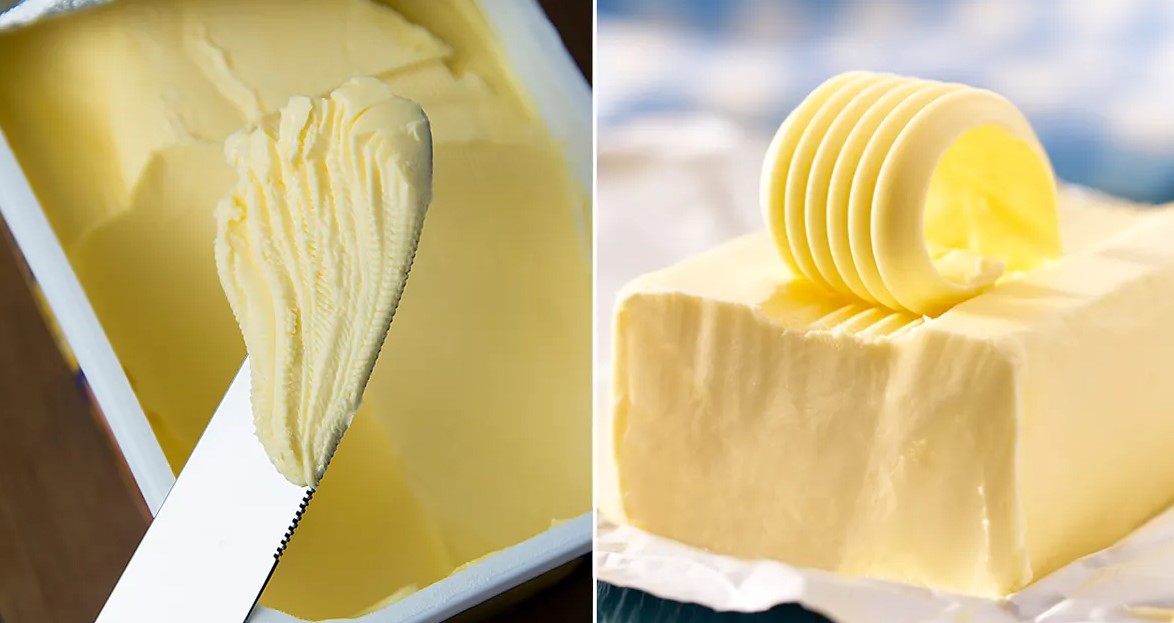
Monounsaturated Fat
Butter also contains monounsaturated fats in smaller amounts than saturated fat.
Polyunsaturated Fat
There are trace amounts of polyunsaturated fats in butter.
Cholesterol
Butter is a source of dietary cholesterol. One tablespoon of butter typically contains about 31 milligrams of cholesterol.
Protein
While not a significant protein source, butter contains small amounts. One tablespoon contains approximately 0.12 grams of protein.
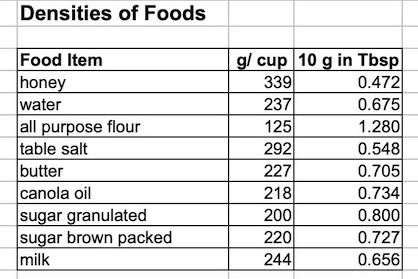
Vitamins
Butter contains essential fat-soluble vitamins, particularly vitamins A, D, E, and K2. The specific amounts can vary depending on the butter’s source and whether it’s fortified.
Minerals
Butter contains trace amounts of minerals such as calcium and phosphorus.
Carbohydrates
Butter is extremely low in carbohydrates, with less than 1 gram of carbohydrates per tablespoon.
Butter and Weight Loss
Protein and Butter
While butter is not a significant protein source, it contains trace amounts. Protein plays a crucial role in weight loss by promoting feelings of fullness and satiety. However, the protein content in butter is minimal compared to other protein-rich foods.
Satiety and Butter
The creamy and satisfying taste of butter can make your meals more enjoyable. Enjoying your food makes you less likely to overeat or crave additional snacks or desserts.
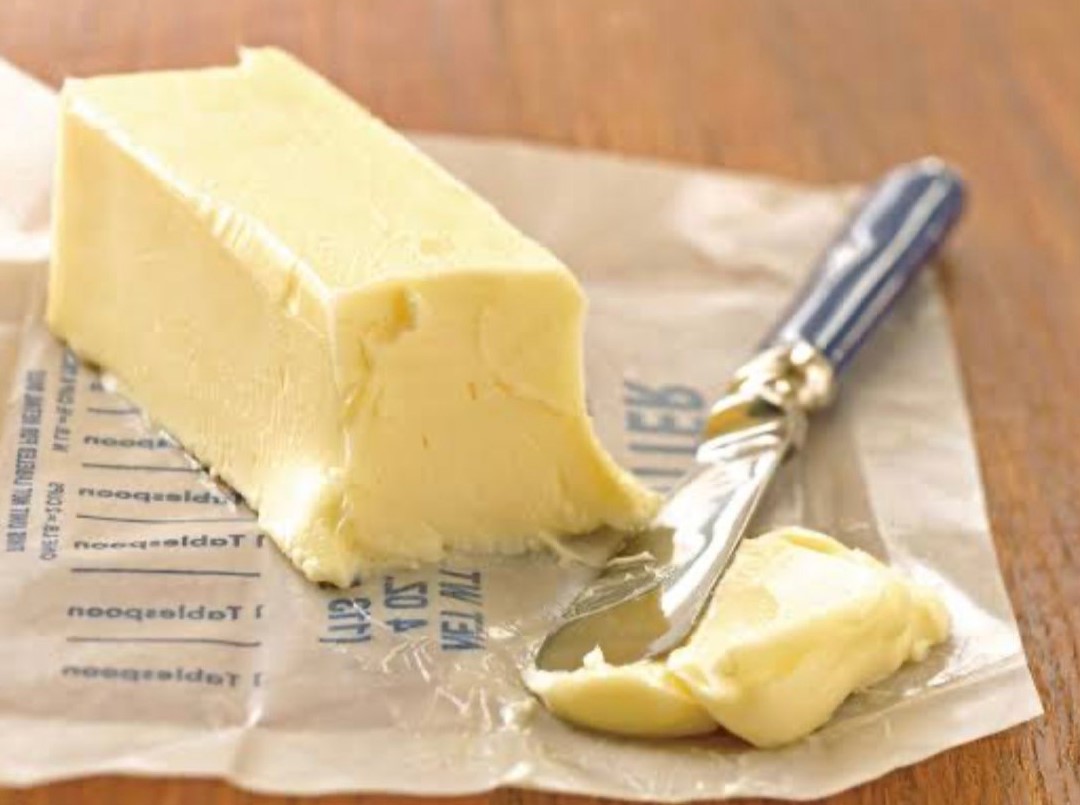
The Fat Factor
Butter is predominantly composed of saturated fat. Saturated fats have long been associated with potential health risks, especially when consumed excessively. This is a consideration for those on a weight loss journey, as excess saturated fat intake may not align with their goals.
Portion Control
Portion control is essential if you choose to include butter in your weight loss plan. Given its calorie density, even small amounts of butter can contribute significantly to your daily caloric intake.
Butter and Other Weight Loss Diets
Keto Diet
The ketogenic (keto) diet, which is high in fats and low in carbohydrates, can accommodate butter. Butter is often a staple in keto recipes.
Mediterranean Diet
The Mediterranean diet emphasizes healthy fats, such as olive oil, over butter. However, occasional moderate butter consumption may fit within this diet’s framework.
Paleo Diet
The paleo diet focuses on whole, unprocessed foods. While butter is not a traditional paleolithic food, some individuals following this diet may use it in moderation.
Choosing the Right Type of Butter
Choosing the correct type of butter can make a difference in taste, nutrition, and health. Here are some factors to consider when selecting the correct kind of butter for your needs:
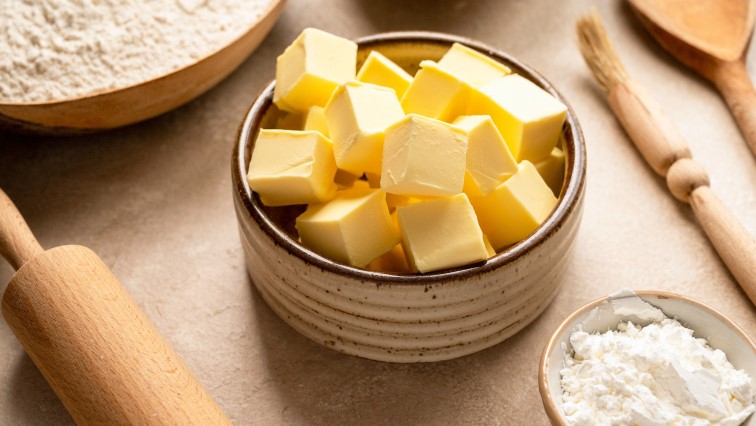
Salted vs. Unsalted Butter
Salted Butter: This type of butter contains added salt, which can enhance its flavor. It’s often used in baking and general cooking. If you choose salted butter, be mindful of the salt content in your recipes, as it can affect the overall taste.
Unsalted Butter: Unsalted butter has no added salt, making it a versatile choice for cooking and baking. Using unsalted butter allows you to control the salt level in your dishes more precisely.
Regular vs. Grass-Fed Butter
Regular Butter: Most commercially available butter is made from milk produced by cows fed a conventional diet. While it’s a common choice, it may not have the same nutritional benefits as grass-fed butter.
Grass-Fed Butter: Grass-fed butter is derived from cows that primarily graze on grass and other natural forage. It tends to have higher omega-3 fatty acids and specific vitamins than regular butter. Some people choose grass-fed butter for its potential health benefits.
Organic vs. Conventional Butter
Organic Butter: Organic butter is made from milk produced by cows raised on organic feed, free from synthetic pesticides and antibiotics. Choosing organic butter can reduce exposure to certain chemicals and support more sustainable farming practices.
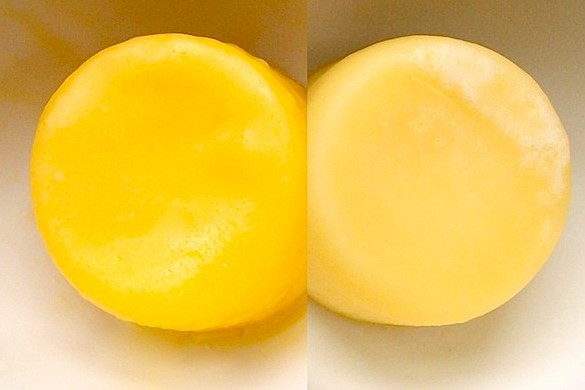
Conventional Butter: Conventional butter is produced using traditional farming methods and may involve pesticides and antibiotics. While it’s widely available and less expensive, it may have environmental and health considerations.
You May Also Like:
Flavored Butter
Some specialty butter has added flavors like garlic, herbs, or spices. These can add unique tastes to your dishes, but check the ingredients for additives or preservatives.
Cultured or European-style Butter
Cultured and European-style butter are known for their rich, creamy textures and slightly tangy flavors. They are often preferred for baking and for spreading on bread or toast.
Certifications and Labels
Look for certifications like “USDA Organic” or “Grass-Fed” on the butter packaging to ensure it meets specific quality standards.
Taste and Preference
Ultimately, choosing butter may come down to your taste preferences. Some people prefer the distinct flavor of certain types of butter, while others prioritize health considerations.
Health and Dietary Restrictions
Suppose you have specific health concerns or dietary restrictions, such as lactose intolerance or a dairy-free diet. In that case, non-dairy butter alternatives are available, such as plant-based margarine or coconut oil-based spreads.
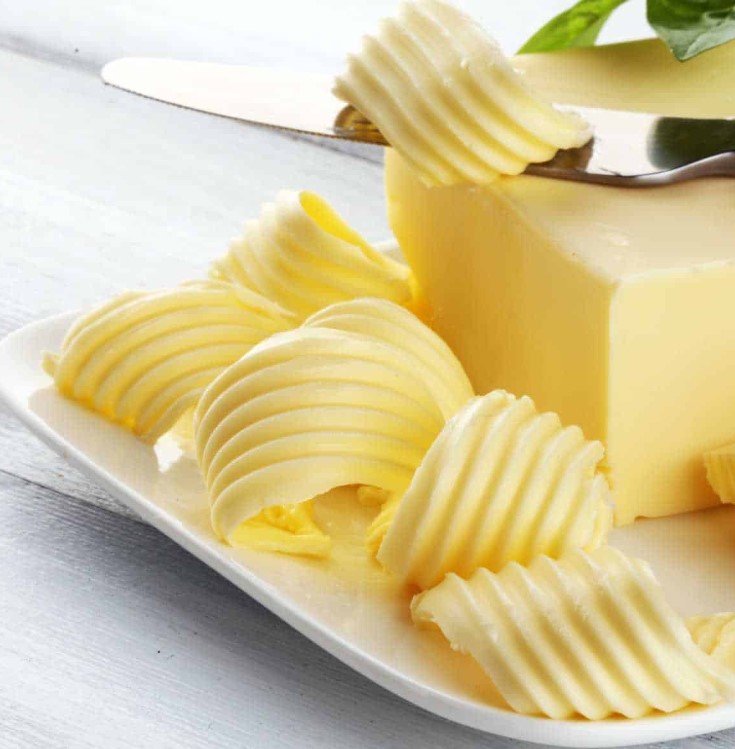
Considerations and Precautions
Types of Butter
Different types of butter are available, including regular, salted, unsalted, and grass-fed varieties. Choosing the right style can make a difference in terms of healthfulness.
Cooking Methods
How you use butter in cooking matters for its impact on your weight loss efforts. Using it sparingly and with other healthy ingredients can be a wiser choice than excessive use.
Individual Variations
It’s important to remember that individual responses to butter can vary. While some people may include butter in their weight loss plans without issues, others may need more caution.
References and Resources
Recommended Articles
Recommended Video
Benefits of Butter: Why Butter Helps You Lose Weight – Dr. Berg
To gain a deeper understanding of how butter fits into your overall health journey, watch the following video:
FAQs – Is Butter Good for Weight Loss
Is butter good for weight loss?
Butter can be part of a healthy weight-loss diet when consumed in moderation. The healthy fats in butter can help to boost metabolism and promote satiety, reducing the risk of overeating and weight gain.
How much butter should I eat for weight loss?
It is important to limit your intake of butter, as it is high in calories and saturated fat. A single serving of butter is typically about one tablespoon, which contains around 100 calories and 11 grams of fat.
What are the benefits of butter for weight loss?
The healthy fats in butter can help boost metabolism and promote satiety, reducing the risk of overeating and weight gain. Butter is also a good source of fat-soluble vitamins like Vitamins A, D, E, and K2, as well as other nutrients such as butyrate and conjugated linoleic acid (CLA).
What are the risks of eating too much butter?
Eating too much butter can lead to weight gain, high cholesterol, and other health problems. It is important to limit your intake of butter and other saturated fats.
What are some healthy ways to use butter?
Butter can be used in moderation in a variety of healthy dishes, such as stir-fries, vegetables, and baked goods. You can also use butter to make clarified butter, which has a higher smoke point and is ideal for cooking.
What are some alternatives to butter?
There are a variety of healthy alternatives to butter, such as olive oil, avocado oil, and coconut oil. These oils are also high in healthy fats and can be used in a variety of dishes.


